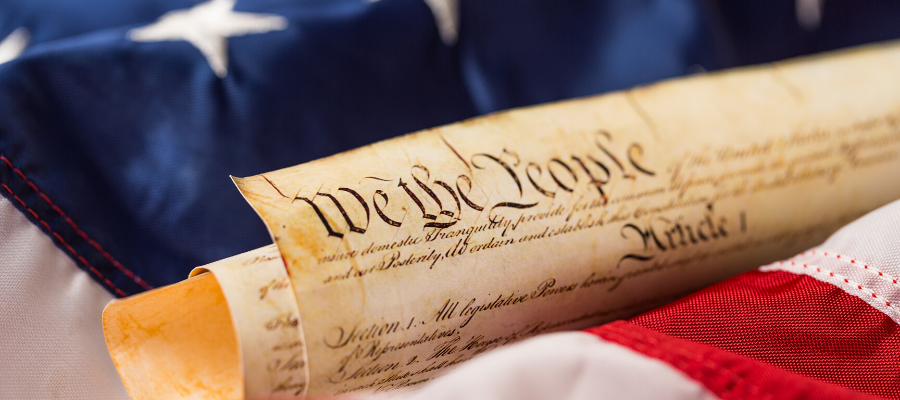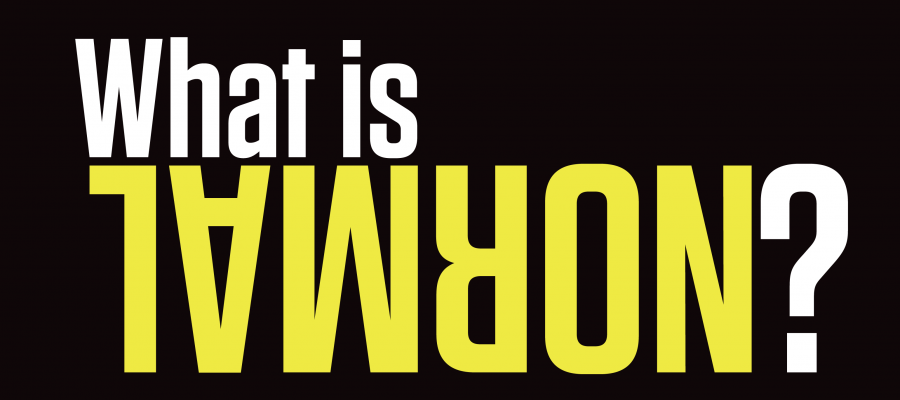Am I a Postmodernist
12
Sep 2009
The term ``postmodern’’ came into use as a description of certain trends in architecture, art, and literature in the 1970’s, although the trends it describes reach back earlier in the twentieth century, to Joyce and Finnegan’s Wake in the case of literature, and to the 1950’s at least in the case of architecture. But what counts as postmodern philosophy? One theme of postmodernism, according to Jean-François Lytard at any rate, is the opposition to theory and “meta-narrative”. If I had just this much to go on, I might think that a good candidate for postmodern...
Read moreGay Pride and Prejudice
04
Jun 2011
Our topic this week -- Gay Pride and Prejudice. Our society, taken as a whole, can’t make up its mind about Gays and Lesbians. On the one hand, many studies have documented increasing tolerance of homosexuality, especially among younger, more educated, more affluent, and more liberal Americans. On the other hand, a substantial number of Americans still don’t think gays should be allowed to marry, serve in the military, adopt or even teach children. The extent of how divided we are about gays and gay rights is evident in our politics. While there's...
Read moreOdds and Ends
24
Jun 2006
Our limited forray into podcasting via the Stanford Itunes experiment has been a great success. Lots and lots of folks, though, have expressed the wish that we would podcast all of our episodes. Well, we're about to make those wishes come true. We're currently in negotiations with two podcasting services. We will probably sign a contract with one or the other in the next week or two. Once we do, we will immediately start converting all of our files to the relevant format. For a modest fee, listeners will be able to subscribe to...
Read more#FrancisOnFilm: Brexit
24
Jan 2019
The British film Brexit, which premiered in the US on HBO on January 19th, flirts with a critical problem in the ethics of journalism: is it permissible to fill gaps in a story with fictionalized accounts of events? According to the Code of Ethics of the Society of Professional Journalists the answer is a resounding "no!" Seeking and reporting truth is the first principle of journalistic ethics; journalists are admonished never to "misrepresent or oversimplify in promoting, previewing or summarizing a story." But Brexit is not a documentary. It is a retelling, sometimes fictionalized...
Comedy on the Edges
14
Jan 2020
Is there comedy so offensive that it shouldn’t be allowed? Do some jokes encourage bigotry and hatred? Could edgy comedy ever be good for society? These are some of the questions we’re asking in this week’s show on Comedy and the Culture Wars. It’s our first new show since Ken died last month (apart from the tribute episode we made), so I hope Ken would be happy to see that we are keeping the torch lit and his legacy alive. We’ve all heard the complaint that “snowflakes” and “political correctness” are ruining comedy. There are some people, the complaint goes, who are just way...
Read moreFractured Identities
22
Jan 2018
What does it mean to have a fractured identity? At a first pass, we might say it means having many parts to one’s personality, many sources of ideals, many drivers of action. Take our good friend Ken, for example. He’s a philosopher, but also a sports fan, a parent, a some-time foodie, and all kinds of other things. That might not seem like a problem, but there are going to be times when those identities come into conflict—when he might have to choose between, say, watching a World Series game and going to a meeting in the philosophy department. Still, Ken might say that there’s no real...
Read moreHow a Glitch Caused a Crisis
05
Jun 2018
We are in a constitutional crisis. It is not a looming crisis. It has already arrived, with the president’s declaration that he has the absolute right to pardon himself and his potential partners in crime, and the absolute right to stop any investigation for whatever reason he chooses. The crisis is not that he has said these things. He is almost certainly wrong in his interpretation of the law and the Constitution. After all, Article II, Section 3 of the Constitution requires the President to “take Care that the Laws be faithfully executed.” Pardoning himself and his cronies out of corrupt...
Read moreWhy We Argue About Fiction
02
Nov 2020
In my last blog, I continued my tradition (hopefully a temporary one) of presenting philosophical puzzles in order to take your mind off the Corona crisis. We’re now up to solving Puzzle 4. Puzzle 4 was about why humans argue with each other about fictional stories. From an evolutionary standpoint, it’s puzzling that humans consume fiction at all. Why waste valuable cognitive resources on information we know is unreal? But it is even more puzzling that we argue about such fictions! My parade example was the arguing people do over Emma Bovary’s psychological condition in Madame Bovary....
Read moreArt as Climate Action
28
May 2023
Fascism is on the rise, new infectious diseases keep cropping up, and we’re on the verge of environmental collapse: how on earth could art possibly save us? The arts are may be nice distraction, but if we want to be actually saved, surely what we need are better leaders, better policies, and people who are willing to listen to science. But then again, that very thought raises a question: how do you get people to listen to science? And some might say the best way is by engaging their emotions and imaginations—which is exactly where the arts come in. OK, maybe Game...
Read moreThe Philosophy of Puns
28
Jul 2016
A Philosophy Talk show on puns can’t just consist of making puns, even if they are good ones. We need to show what’s philosophically interesting about them. First a couple of definitions. As a noun, a pun a joke exploiting the different possible meanings of a word or the fact that there are words that sound alike but have different meanings: the pigs were a squeal (if you'll forgive the pun).As a verb, to pun is to make a joke exploiting the different possible meanings of a word: his first puzzle punned on composers, with answers...
Read moreThe Ethics of Drone Warfare
09
Sep 2015
In the last six years alone, at least two and a half thousand people have been killed by US drone strikes.[1] That’s nine times more drone attacks under Obama than under his predecessor, George W. Bush. The justification for this increase in attacks is that drones are precise, effective weapons that reduce unintended casualties. Some might find the idea of a killing machine that can be operated from thousands of miles away deeply chilling. But the defenders of drones say that cold and detached is good in war. It means soldiers can be calm and dispassionate, and not act out of fear. They can...
Read moreThoughts on the Doubling of Consciousness
06
Feb 2006
W.E.B. DuBois's most famous writing was his wonderful book with the title "The Souls of Black Folks." The plural "souls" refers not just to the plurality of souls, one per person, of the many black folk, but to the two souls in each of them: ...the Negro is a sort of seventh son, born with a veil, and gifted with second-sight in this American world, --- a world which yields him no true self-consciousness, but only lets him see himself through the revelation of the other world. It is a peculiar sensation, this double consciouisness, this sense of always looking at one's self...
Read moreBeauty and subjectivity
08
Mar 2005
Here are two truisms about beauty: Beauty is only skin deep Beauty is in the eye of the beholder With respect to the first I can only say, “Thank God.” The idea is that beauty is a superficial characteristic that does not provide great evidence for character, personality, wit, intelligence and other such virtues. As a one of the beauty-challenged members of our species, I would really resent it if beauty were a good indication of those things. Enough is enough. Let the rich and the beautiful be boring and dimwitted as far as I am concerned. It’s the second truism...
Read more[AUDIO] Is Taste Really Subjective?
06
Jul 2017
You have your favorite band, and I have mine. Is one of us right? It is said that taste is simply subjective, and there is nothing factual or objective to aesthetic judgments. But are aesthetic judgments completely groundless? When we say something is in bad taste, does that statement have anything behind it at all, besides expressing our personal disapproval? Is taste truly nothing more than personal preference? Join Nigel Warburton and David Edmonds on this episode of Aesthetics Bites, as they speak with Elisabeth Schellekens Damman on aesthetic disagreement. [AUDIO LINK]...
Read moreAutomation and the Future of Work
23
Sep 2017
Will technology eventually eliminate the need for human labor? Without work, will we finally have all the free time we want to pursue our hobbies and passions? Or do we need work to give our lives a sense of purpose and achievement?Ever since the invention of the wheel, we humans have been coming up with all sorts of new technologies to reduce or even eliminate certain types of labor. In many ways, this has been a boon for humanity. Apart from saving us time and effort, these inventions have grown our economies, and have increased the standard of living worldwide. Now, we...
Read moreFreedom, Blame, and Resentment
16
Oct 2014
Our topic this week is a threesome. We’re going to talk about freedom, blame, and resentment. You might not think that those three are obviously connected, but I hope to convince you that they are. Let’s start with the middle term of our threesome – blame. We blame people when they do bad things. Blame often leads to or is accompanied by resentment, especially when we are directly and personally harmed by another person. For example, some reckless jerk is darting in and out of traffic. He cuts me off, causing my car to spin out of control. ...
Read moreSelf Deception
26
Aug 2010
Our topic this week is self-deception. Self-deception is rampant in human affairs. And although too much self-deception is probably a bad thing, a little self-deception may be just what a person needs to get through the day. One should never underestimate the power of positive illusions. For example, psychological studies show that people who are overly optimistic about their own abilities often have enhanced motivation, which enables them to do better in the face of challenges than people with more realistic assessments of their own talents. Of course, it may be...
Read moreOn Being Normal
16
Feb 2012
This week we’re going to discuss what it is to be “normal”. It seems simple enough. What’s normal is what most people do. Or perhaps what most people do, or what typical people do, or what most typical people do. It’s definitely what normal people do --- but that’s circular. There seem to be two related senses or uses of `normal’. There’s what we might call the statistical sense: here normal is the average, the mean, or perhaps the median, or the typical. Then there’s the normative sense of normal. Normative means that what’s normal is...
Read moreRename that Radio Show??
05
Dec 2007
Believe it or not, program directors, the gate-keepers of public radio, almost universally hate the name 'Philosophy Talk' -- whatever they think of the program Philosophy Talk. Even PD's who seem otherwise to like the program quite a lot, sometimes say they hate both the 'talk' part of our name and the 'Philosophy' part of our name. But folks seem particularly to hate the combination of 'Philosophy' and 'Talk'. A PD at a very major station on the West Coast hated our name so much that he/she even cited it as one reason for not putting us on the air when we were first starting out. Because we...
Read morePostmodernism: The Decline of Truth
15
Jul 2019
Did postmodernism have any part to play in the rise of the post-truth era? At first glance that seems very hard to believe. When we see Kellyanne Conway talking about “alternative facts” or Rudy Giuliani saying “truth isn’t truth,” we don’t immediately assume they’ve been busy reading Jacques Derrida and Richard Rorty. Still, maybe the question isn’t quite so simple. For one thing, there are a few documented cases of right-wingers explicitly drawing on postmodernist theory. Take Vladislav Surkov, Kremlin ideologist. Or Phillip Johnson, one of the originators of the “...
Read moreThe Ethics of Pet Keeping
27
Jun 2020
Do we really have the right to own our fellow creatures? Are there some animals that should never be kept as pets? Is it okay to declaw a cat, clip a bird’s wings, or dock a dog's tail? These are some of the questions we're asking on this week's show. Ideally, keeping a companion animal is a good thing that enriches both of your lives. I can’t find fault with someone who adopts an animal from a shelter, and provides care throughout the animal’s life. But many people who keep pets fall short of this ideal. In worst-case scenarios, people neglect or abuse nonhuman animals in a variety of...
Read moreWhy Race Matters
30
Oct 2017
Do black lives really matter in America? Indeed, have they ever mattered, in our sordid racial history? And what, if anything, can we do to make sure that black lives matter today? These are just some of the questions we address on this week’s episode that we are calling “Race Matters.” Now as a black man, I have to say I find it depressing that here we are, pretty deep into the 21st century, and there’s still a question about whether black lives really matter. I admit that it’s not all bad news. We've eliminated formal discrimination in housing. We’ve removed many of the old barriers...
Read moreA Case for Conservative Universities
12
Apr 2018
Some argue that American universities mainly cater to liberal academics and liberal thought. Is there a case to be made, then, for support of "conservative schools" in higher education? Journalist Rachel Lu holds this view in the affirmative, writing that conservatives develop undergraduate curriculums differently from their liberal counterparts. Conservative-focused academic programs might even "save" the United States, she writes, by producing more conservative intellectuals and pundits. These intellectuals help "bring out the best in conservatism" and, in conservative academies, are...
Read moreAge, Ageism, and Equality
02
Dec 2021
Is age discrimination always wrong? How do we take people's age into account without being ageist? These are the questions we’re asking this week, in an episode called “Should All Ages Be Equal?” Clearly we don’t want to discriminate, say, against 50-something Brits when it comes to hiring. (I’d be out of a job at Philosophy Talk!) But at the same time, we equally clearly don’t want to let a five-year-old drive a car, a 15-year-old buy a bottle of whisky, or a 40-year-old compete against kids in a spelling bee. So how do we draw the lines? And are we currently drawing them in a fair...
Read moreThe (Re)creation of the World
12
Dec 2024
How much can we know about Mayan Mythology? Much of the Mayan way of life, along with its associated oral traditions, was wiped out by European invaders in the 16th century. But there are still Maya communities today, and we also have a few written sources, including the Popol Vuh. Many believe we can still glimpse a fascinating worldview through the beautiful stories it tells. Here’s one of those stories: once upon a time there was a committee of gods, and they wanted to be praised. First they tried getting the animals to praise them, but all that yielded was a...
Read more



















